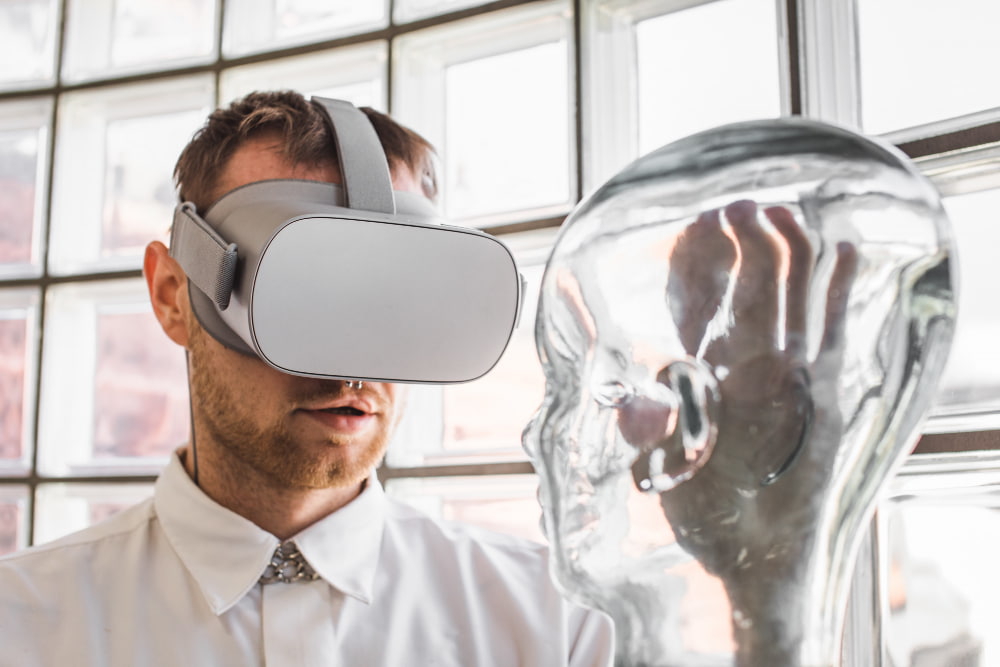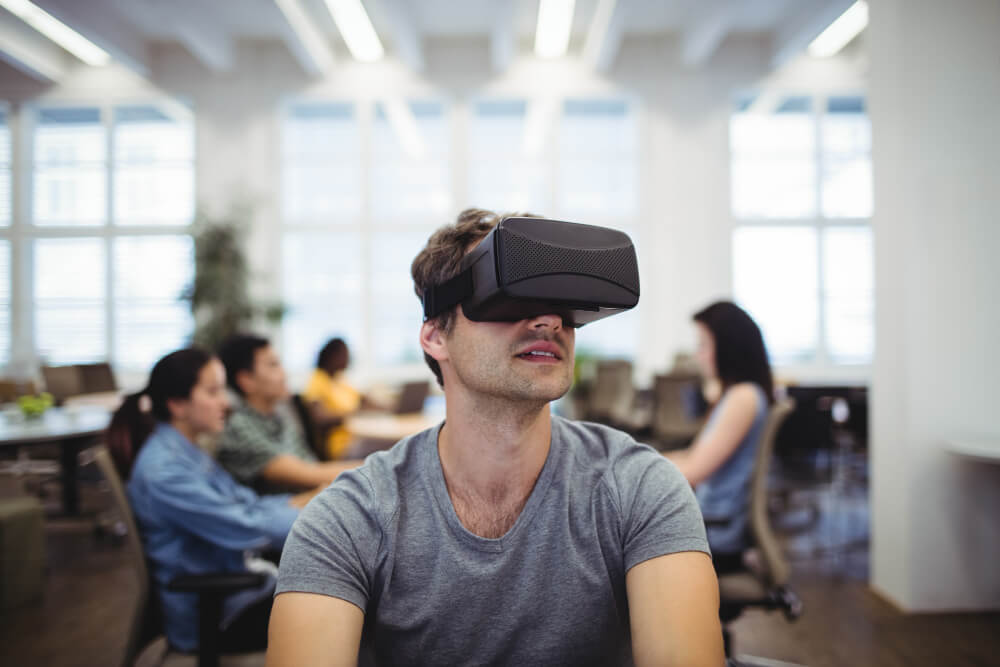Why Businesses Need to Consider VR As Their Top Investment Choice
Table of Contents:
Virtual Reality has become a game-changer, providing numerous opportunities and advantages for companies in various industries. Why is VR a good investment and what can it bring to your business?
7 reasons to make a VR investment
Are you wondering if VR is a good investment? There are a few potential business benefits to consider:
Enhancing customer experience
VR has the power to create immersive and memorable experiences for customers. By investing in VR, you can create a unique and interactive environment that will not only captivate your audience but also foster a stronger emotional connection to your brand. This increased engagement can lead to higher customer retention and brand loyalty, making VR a powerful tool for businesses seeking to stand out in a crowded marketplace.
Revolutionizing training and education
With VR, you can create realistic simulations and scenarios that enable hands-on learning in a safe and controlled environment. This is especially valuable in industries like healthcare, aviation, and manufacturing, where the stakes are high, and mistakes can be costly. VR training programs reduce the risks associated with traditional training methods and can lead to improved employee performance, reduced training time, and increased overall efficiency.
Expanding global reach
The world has become more interconnected than ever, and businesses are constantly seeking ways to reach a global audience. VR can break down geographical barriers and bring your products and services to consumers worldwide.
By creating virtual showrooms or interactive online experiences, your business can reach a vast and diverse audience. The immersive nature of VR allows potential customers to interact with your offerings as if they were physically present, fostering a sense of connection that transcends distances.
Accelerating product development
In today’s competitive landscape, businesses need to bring products to market quickly and efficiently. VR is an invaluable tool for streamlining the product development process. By creating virtual prototypes, teams can collaborate in real-time, identify issues, and make necessary adjustments before physical prototypes are ever produced. This not only reduces development time but also cuts down on costs, making VR a wise investment for companies looking to innovate and adapt in a rapidly changing environment.
Improving customer service and market research
Gathering customer feedback and conducting market research are essential activities for any business. VR offers a new and engaging way to collect data and insights. By creating virtual surveys and immersive environments, you can gain a deeper understanding of your customers’ preferences, behaviors, and pain points to make better-informed decisions and gain a competitive edge.
Unlock the future with Mazer: Your innovation partner.
Enhancing collaboration and remote work
The world has witnessed a significant shift towards remote work, and the demand for effective collaboration tools has never been higher. VR can bridge the gap between physical and remote collaboration, allowing teams to meet in virtual meeting spaces, interact with 3D models, and work on projects as if they were in the same room. This not only enhances teamwork and creativity but also promotes a sense of togetherness, making VR a wise investment for businesses aiming to adapt to the changing work landscape.
Gaining a competitive edge
In a crowded marketplace, gaining a competitive advantage can be the key to survival. VR offers businesses a unique opportunity to differentiate themselves from their competitors. By integrating VR into your operations, you can show customers, partners, and employees that you are forward-thinking, innovative, and committed to providing the best possible experiences.
Investing in VR: The Takeaway
In a rapidly evolving business landscape, the decision to invest in virtual reality is a choice that can set your company apart from the competition and future-proof your operations. VR enhances customer engagement, transforms training and education, expands your global reach, accelerates product development, and improves customer feedback and market research. It also enhances collaboration and remote work, increases your competitive advantage, and builds brand authenticity. As you consider your investment choices, remember that VR is not just a trend; it’s a transformative technology that can shape the future of your business.
The question is no longer, “Is VR a good investment?” It’s “How can we harness the power of VR to propel our business forward?” Those who embrace VR as their top investment choice will not only stay ahead of the curve but will also redefine the way business is done in the 21st century. The opportunities are vast, and the potential is limitless.
You may also read: How to Invest in Metaverse?
What are the key benefits of investing in VR for businesses?
Virtual Reality offers benefits such as enhancing customer experience, revolutionizing training, expanding global reach, accelerating product development, improving customer service, and gaining a competitive edge.
How can VR enhance customer experience for businesses?
VR enhances customer experience by creating immersive and interactive environments that captivate the audience, fostering stronger emotional connections to the brand. This engagement can lead to higher customer retention and loyalty.
What role does VR play in improving collaboration and remote work for businesses?
VR bridges the gap between physical and remote collaboration, enabling teams to meet in virtual spaces, interact with 3D models, and work together as if they were in the same room.
Unlock the future with Mazer: Your innovation partner.

Author: Rafał Siejca
Rafal has over twenty years of corporate experience, including roles at Millennium Bank, Comarch, and leading software teams at PZU, one of Europe’s largest insurance companies. As one of Poland’s few true VR experts with a decade of experience, he ensures timely, high-quality project delivery as CEO and CTO.










